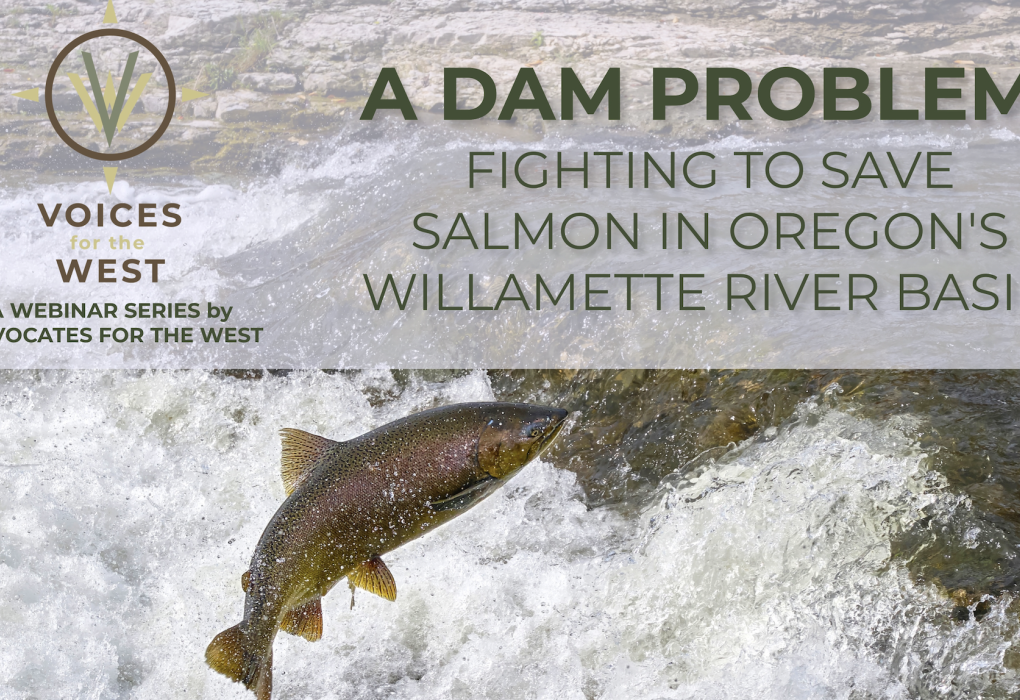A Dam Problem: NFS' Jennifer Fairbrother Speaks on "Voices for the West" Webinar about the Negative Impacts of Dams in the Willamette River Basin
On April 30th, NFS Legislative and Policy Director Jennifer Fairbrother joined the Kathleen George, Council Member for the Confederated Tribes of Grand Ronde, and Laurie Rule, Senior Attorney at Advocates for the West, on the Voices for the West webinar. This episode featured a discussion about ongoing efforts to save chinook salmon and steelhead in the Willamette River Basin from the threat of extinction, as Willamette River dams continue to threaten these native fish populations by altering flows, impeding fish passage, and impacting water quality.
During the webinar, Jennifer reported distressing news about the state of native fish populations in the Willamette River Basin: “In 2017, we unfortunately had the lowest run year on record for steelhead with only 512 steelhead making it into the upper basin.” Meanwhile, the Army Corps of Engineers continues to delay publishing Congressionally-mandated reports about the impacts of these dams, costing taxpayers money and wasting precious, limited time to save these threatened, legally-protected species.
Check out the full webinar at this link here.
One way to help these fish populations is through deep drawdowns, as NFS has advocated and as the National Marine Fisheries Service also agreed is a promising option in a biological opinion published last December. As the Eugene Weekly explained in a recent article, deep drawdowns allow for improved juvenile fish passage by exposing these fish to access tunnels near the bottom of dams. Drawdowns also allow these dams to better achieve their intended purpose: flood control.
“You actually maximize that flood control purpose when the reservoirs are lower,” Jennifer explained in that same article. In the Willamette Valley, flood control is an important priority over hydropower, which is actually extremely inefficient at these facilities; these dams consistently experience net losses, since they do not generate enough power to offset operation costs. Deep drawdowns are a win-win for flood control, and NFS is optimistic about this recent study from the National Marine Fisheries Service and for the opportunity to work with local communities to make drawdowns an effective and safe reality.
Read more from the Eugene Weekly about deep drawdowns here.
NFS is continually working to save these threatened native fish in the Willamette River Basin. While we've faced setbacks and delays from the Army Corps of Engineers, we're not giving up on these fish and the healthy watersheds local communities deserve. Stay updated on this issue by following our social media and signing up for our weekly newsletter, Redd It!

